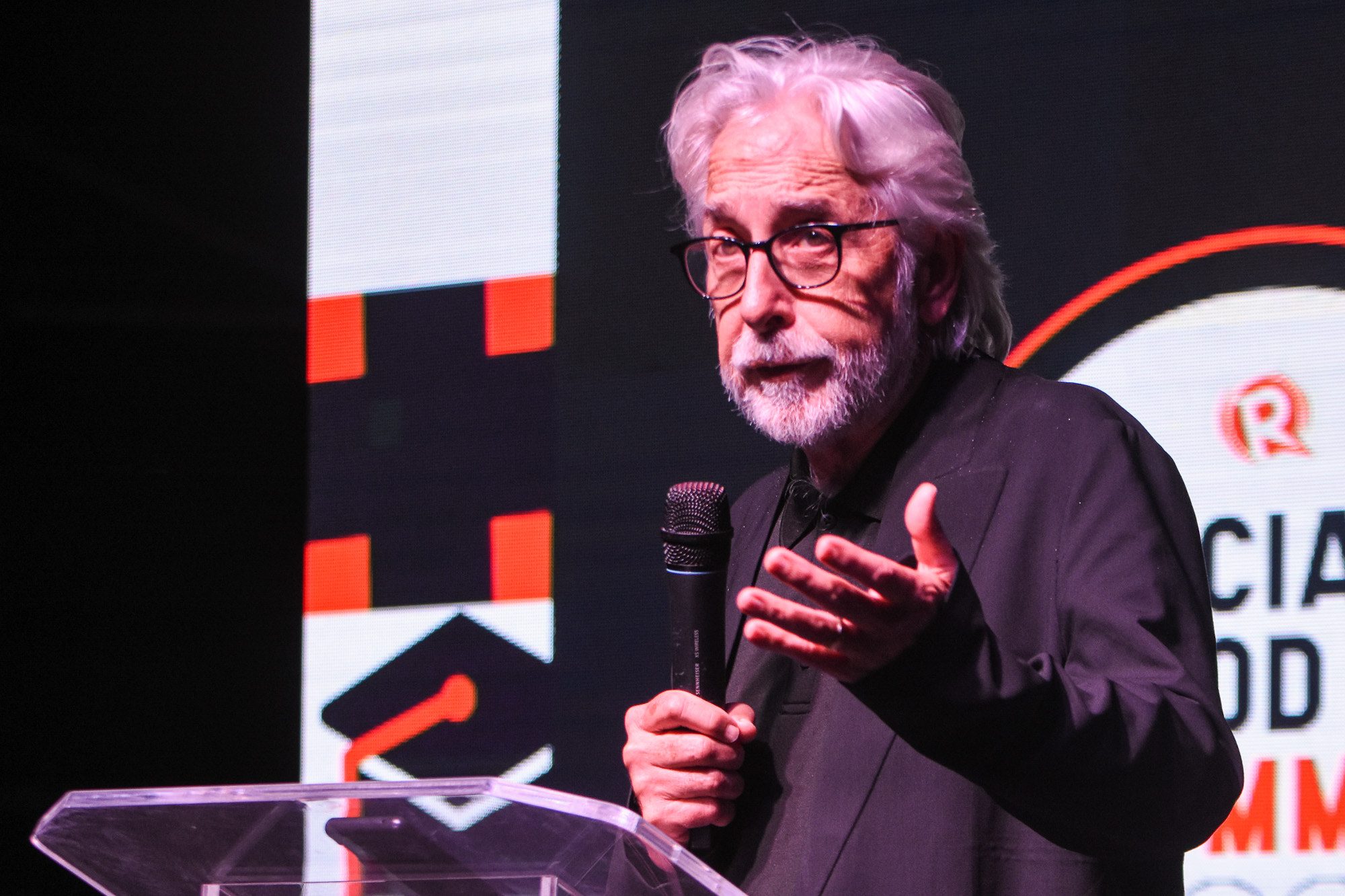SUMMARY
This is AI generated summarization, which may have errors. For context, always refer to the full article.

MANILA, Philippines – Richard Gingras, vice president for News at Google, raised several questions on Saturday, September 16, on he deemed as media’s identity crisis and loss of trust in a changing landscape.
In his speech at Rappler’s Social Good Summit (SGS), he said he had wondered what journalists could do to “rebuild a sense of relevance, of value, of trust in journalism itself and the work it produces.”
But only focusing on trust is misunderstanding the problem, said Gingras, who has been part of and studied the media for 50 years.
“We don’t have a deficit on trust. Everyone trusts someone. Everyone trusts some sources of information, whether we think those sources are trustworthy or not,” Gingras said.
Journalists should instead ask if the public truly understands the work they do and if they help people make informed choices. Gingras floated the idea of constructive journalism – which, simply put, is reportage that focuses more on the solution rather than the problem.
“Journalism has a marketing problem. We need to better explain journalism and its role in providing the information citizens need to be informed citizens,” the Google executive said.
Making journalism constructive
Making people understand what journalism is for would require journalists to “provide a more accurate sense of perspective.”
To do this, news coverage must provide appropriate context that can help mold people’s perception of reality, and shake off a distorted sense of reality that the press, with its business model of “if it bleeds, it leads,” help feed.
“Every day, we read about violent crime, home invasions, kidnappings, refugee flows – all the horrific but anomalistic events that occur in our modern world,” said Gingras. “However unintentional, news reporting plays an intrinsic role in molding perceptions of reality that conflict with actual reality.”
“Constructive journalism goes beyond the typical coverage model, with clear signals and clear intent to include the necessary context, the hows and the whys of the calamitous event, and, importantly, explore objectively how the calamitous event could be prevented,” said Gingras.
In an era of divisiveness, he also called for stories “highlighting relatable, sympathetic exemplars of different political beliefs.” Such stories can unify people and build trust for more controversial coverages in the future, said Gingras.
He also advised how journalists can explore modern tools like generative AI to help them surface related context stories to fold in breaking news stories.
Oversized impact of Big Tech’s algorithms
In a succeeding panel discussion after Gingras’ speech, Julie Posetti, the global director of research at the International Center for Journalists, disagreed with the Google executive, countering Gingras’ points on trust in journalism.
Posetti said: “As a researcher who focuses on the future of journalism and who works closely with news organizations around the world, it feels disingenuous to be lectured about trust by a Google executive…. Your algorithms and your interfaces are a big part of the problem.”
She also reiterated the need for journalism to be critical, and asked that firms’ response to critical reports shouldn’t be efforts on public relations.
“If we…recognize that accountability journalism does require a degree of reportage [and commentary] that might be perceived to be critical…by big tech, we should be able to expect that the counter response is not to resort to public relations exercises,” she said.
While Gingras offered his take on the media and its problems, the executive did not mention the impact that Big Tech platforms, which includes Google and Google-owned YouTube, have on today’s information ecosystem in his speech.
In the Philippines, for example, Rappler research has shown how YouTube’s unclear policies had allowed lies and disinformation on the Marcos clan to thrive, eventually helping restore the family to power; allowing vloggers to thrive with false or hateful content that also often includes attacks on the press; and for hosting channels that mimic and “hijack” the news genre to make false claims look and sound legitimate.
Journalists, researchers, and activists have also called for transparency on the code and algorithm of social media sites. The algorithms digitally segregate people as a function of these platforms’ ad-based business models, but also end up creating separate realities for society.
Posetti called for further transparency from tech firms, echoing calls from Nobel Peace Prize laureate Maria Ressa and Facebook whistleblower Frances Haugen to have the government mandate Big Tech to allow access to data regarding their systems.
For his part, Gingras defended Google and said he doesn’t believe the firm is destructive to democracy, and noted the need to find common ground in an era of deep polarization.
The SGS was attended by key leaders in tech, business, and civil society, headlined by 67th US Secretary of State Hillary Rodham Clinton, Philippine Chief Justice Alexander Gesmundo, and Frances Haugen.
Sessions were organized with the theme “#TurningTechForGood: From problem to solution,” focusing on what institutions, communities, companies, and other sectors can do to shape an environment that will enable reform in tech and stem further harm on society. – with reports from Gelo Gonzales/ Rappler.com
Add a comment
How does this make you feel?
![[OPINYON] Tungkol sa naging viral na social media conjecture](https://www.rappler.com/tachyon/2024/07/thought-leaders-conjecture-07262024.jpg?resize=257%2C257&crop_strategy=attention)
![[DECODED] The Philippines and Brazil have a lot in common. Online toxicity is one.](https://www.rappler.com/tachyon/2024/07/misogyny-tech-carousel-revised-decoded-july-2024.jpg?resize=257%2C257&crop_strategy=attention)



There are no comments yet. Add your comment to start the conversation.